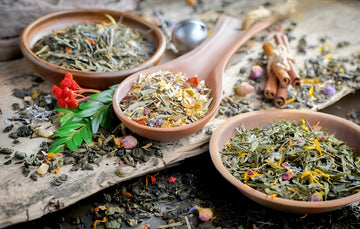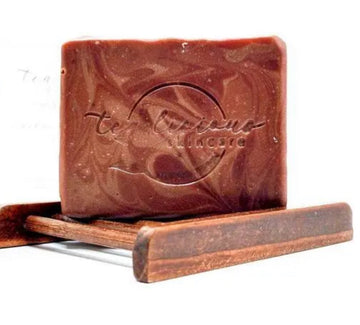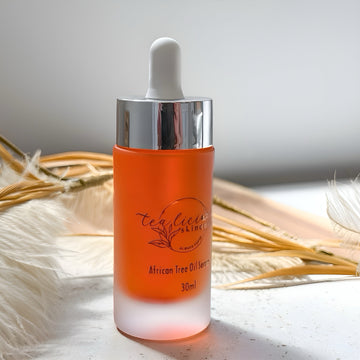I've always been fascinated by the science behind effective natural skincare. In a world where we're bombarded with endless beauty product options, it can be overwhelming to navigate the landscape and separate the truly effective, sustainable formulas from the ones that fall short. But I'm here to share my expertise and empower you to make informed choices when it comes to caring for your skin.
Let's start with the foundation of any great natural skincare product: the ingredients. Gone are the days when "natural" meant ineffective or subpar. The clean beauty trends sweeping the industry have ushered in a new era of high-performance, scientifically-backed natural ingredients that can outshine their synthetic counterparts.
Take, for example, the humble aloe vera plant. This botanical powerhouse is renowned for its soothing, hydrating, and even wound-healing properties. But did you know that the specific compounds within aloe, like acemannan and polysaccharides, have been extensively studied for their skin-nourishing benefits? When formulated properly, aloe can help calm inflammation, boost moisture levels, and even promote collagen production for a more youthful, radiant complexion.
Or consider the anti-aging prowess of retinol – a vitamin A derivative that's long been hailed as a skincare superhero. While synthetic retinoids can be effective, they also tend to be harsh and irritating for many skin types. Enter bakuchiol, a plant-based retinol alternative derived from the babchi plant. Research has shown that bakuchiol can deliver many of the same benefits as retinol – think reduced wrinkles, improved skin texture, and enhanced cell turnover – but with a gentler, more soothing profile.
These are just a few examples of the incredible natural ingredients revolutionizing the skincare industry. And the best part? They're often sourced through ethical, sustainable practices that minimize environmental impact. Brands committed to sustainable packaging in beauty are leading the charge, using recycled, recyclable, and biodegradable materials to reduce waste and plastic pollution.
But natural skincare isn't just about the ingredients – it's also about the formulation process. As a skincare formulator myself, I can attest to the meticulous attention to detail required to create truly effective, stable natural products. It's not as simple as just throwing a bunch of botanical extracts into a jar and calling it a day.
Take, for instance, the challenge of preserving natural formulas without using harsh, synthetic preservatives. Many natural brands have turned to innovative preservation systems like using specific essential oils, fermented ingredients, or even high-frequency sound waves to keep their products fresh and safe, all while maintaining their natural integrity.
And when it comes to DIY natural skincare recipes, it's crucial to understand the science behind ingredient compatibility, pH balancing, and proper extraction methods. Not every homemade concoction will be stable, effective, or even safe to use on your skin. That's why I always encourage my readers to do their research, consult trusted sources, and start with well-tested, expert-approved formulas.
Of course, the efficacy of natural skincare goes beyond just the ingredients and formulation. The way we care for our skin – from our cleansing and exfoliating routines to the way we apply our products – can also have a significant impact. That's why I'm a big proponent of the less-is-more approach, especially for those with sensitive skin.
Gentle, nourishing cleansers, soothing toners, and hydrating serums and moisturizers are the foundation of any effective natural skincare regimen. And when it comes to exfoliation, physical scrubs can be harsh and damaging, while chemical exfoliants like alpha hydroxy acids and enzymes can provide a more gentle, targeted approach.
But perhaps one of the most important factors in achieving healthy, radiant skin through natural means is the concept of ethical ingredient sourcing. As consumers become more conscious of the environmental and social impact of their purchases, brands that prioritize transparency and fair trade practices are rising to the top.
Tea-Licious Skincare, for example, sources its key natural ingredients from ethical suppliers who prioritize sustainable farming methods and fair labor. This ensures that not only are the botanicals, oils, and extracts of the highest quality, but that the communities and ecosystems from which they're derived are also being supported and protected.
And when it comes to natural anti-aging skincare, brands that take this holistic, ethical approach tend to outshine those that simply jump on the latest trendy ingredient. After all, true skin health and youthfulness come not just from what we put on our faces, but from the way those ingredients are cultivated and processed.
As I reflect on my own journey in the world of natural skincare, I'm constantly in awe of the incredible power of plants and the transformative effects they can have on our complexions. From soothing inflammation to boosting collagen production, the science behind effective natural formulas is both fascinating and empowering.
So, if you're ready to take your skincare routine to the next level and experience the benefits of high-performance, sustainable natural ingredients, I encourage you to dive in and explore. Start by researching trusted natural brands, familiarizing yourself with key botanical actives, and perhaps even trying your hand at a DIY natural skincare recipe or two.
Remember, the path to healthy, radiant skin isn't about perfection – it's about finding what works best for your unique needs and embracing the science-backed power of nature. Together, let's redefine the future of skincare and create a more conscious, sustainable beauty landscape.
#Eco-Friendly #NaturalSkincare #HandcraftedSkincare #NaturallySourced #EcoFriendly #All NaturalSkincare #ChemicalFreeBeauty #SafeBeautyProducts #SustainableFuture






